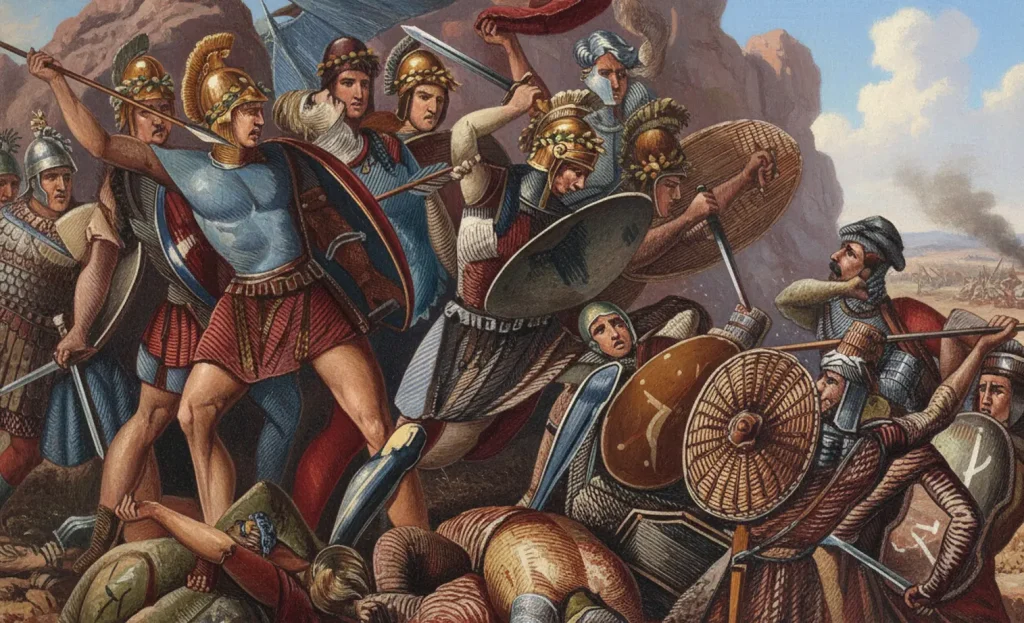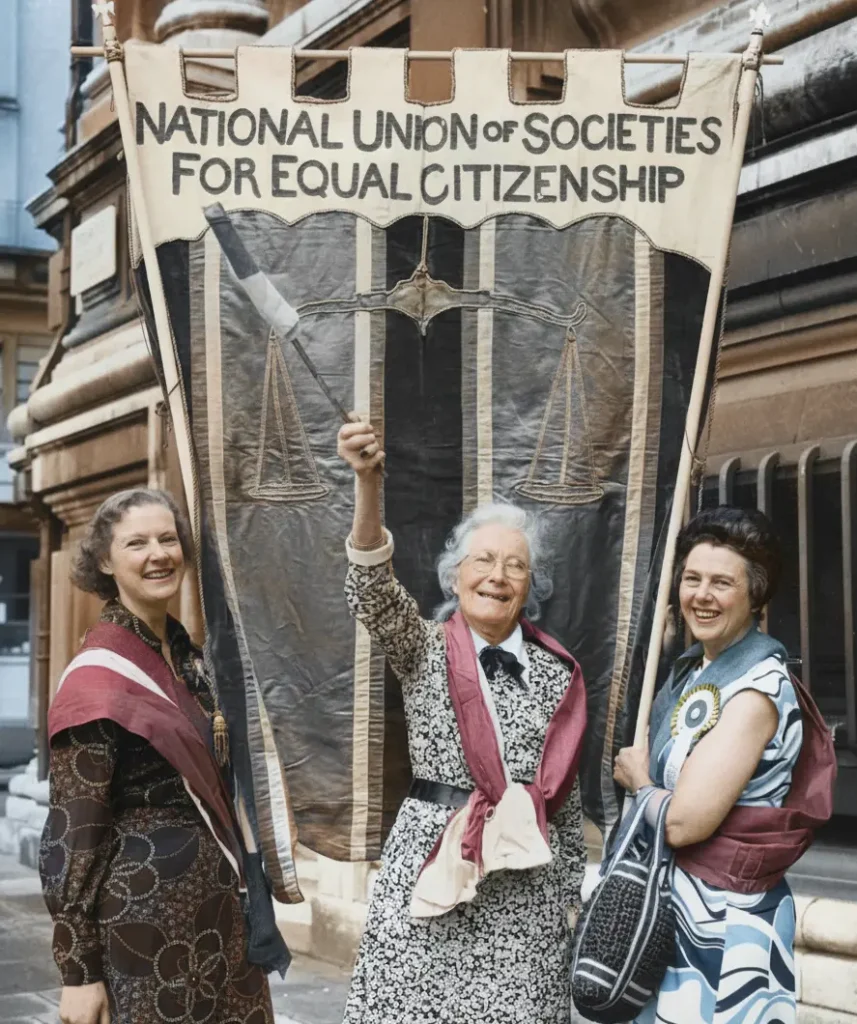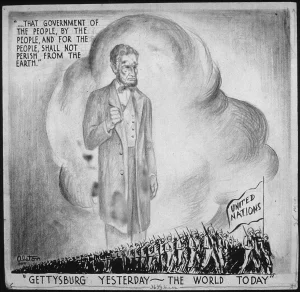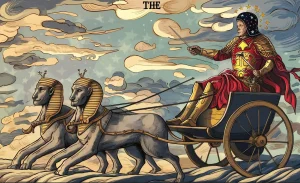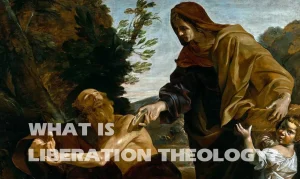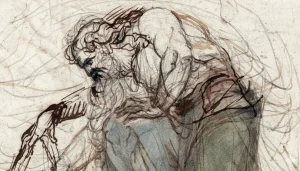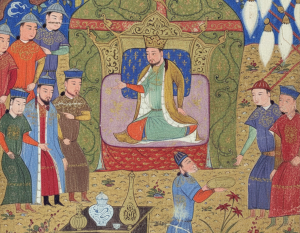John Locke’s Two Treatises of Government (1690) remains one of the foundational texts of modern political philosophy. Its publication came at a critical juncture in English history—the Whig revolution of 1688—which saw William of Orange ascend to the throne and usher in an era that would later be understood as a precursor to liberal democracy. In his treatises, Locke sets out to justify the legitimacy of the new regime while simultaneously drawing boundaries around the right of rebellion. His ideas not only influenced the political landscape of his time but also opened up enduring questions about the nature of authority, the rights of individuals, and the relationship between the state and its citizens.
Locke’s Political Philosophy and the State of Nature
At the heart of Locke’s political theory is his conception of the state of nature. Unlike Thomas Hobbes, whose state of nature is characterized by a “war of all against all,” Locke’s version is less chaotic. According to Locke, human beings in the state of nature live in families and maintain settled social orders. They possess property, form claims on one another, and are guided by natural law. Yet, despite these structures, life in the state of nature has significant defects. People often apply the natural law more strictly to others than to themselves, and without an impartial arbiter to resolve disputes, conflicts can easily escalate into a state of war.
Locke’s remedy is the social contract. By entering into a contract, individuals transfer some of their personal authority to a civil government entrusted with protecting their natural rights—most notably, the right to property. Locke argues that the legitimacy of this civil authority hinges on its ability to secure the natural rights of its citizens. If it fails in this task, its authority ceases to be legitimate. This contractual arrangement, enforced by laws passed by a majority vote, forms the basis for what we now consider the essence of liberal democracy.
However, this emphasis on property introduces certain tensions. Locke posits that a man’s right to property is derived from his labor—whatever one’s labor produces becomes his property. Yet this very notion allows for significant inequalities, since those with more resources may acquire even more property, including the labor of others. Locke appears to assume that the franchise, or the right to participate in government, will naturally be controlled by property owners, especially those with large-scale holdings. This assumption is reinforced by his doctrine of tacit consent, which holds that simply residing within the bounds of a government’s territory implies an agreement to its laws—even for those who might never have actively endorsed them.
Tacit Consent and the Modern Democratic State
The doctrine of tacit consent remains influential, even if controversial, in modern democratic theory. Locke argued that any person who enjoys the benefits of government—whether they are staying for a week or living there permanently—implicitly consents to obey its laws. This notion underpins many contemporary states that, despite their democratic façade, often allow only passive forms of political participation. Modern governments, like Locke’s Whig oligarchy, claim legitimacy based on popular consent while simultaneously maintaining coercive powers. Critics argue that if citizens never actively provide explicit consent, the moral force of the government’s authority is fundamentally undermined.
In effect, either the authority of the state is illegitimate, or it must be defended by some form of tacit consent. But meaningful consent requires that individuals not only receive the benefits of government but also understand the nature of what they have agreed to. Locke’s formulation sidesteps these issues by assuming that living within a nation’s territory is enough to bind an individual to its laws. This assumption has profound implications for debates about individual rights versus state power—a debate that continues to resonate in political discourse today.
The Moral Foundations of Natural Rights
Locke’s defense of the social contract is deeply intertwined with his understanding of natural rights. In Locke’s view, natural rights arise from a moral law apprehended by reason. He believes that human beings, as rational creatures, can discern what is good and evil through the natural consequences of pleasure and pain. This moral dimension is not only a matter of abstract reasoning but is also rooted in the everyday experiences of individuals.
Locke’s moral philosophy shares common ground with the semi-Platonic tradition of the Cambridge Platonists, such as Benjamin Whichcote and Henry More. These thinkers argued that certain moral principles are self-evident—almost mathematical in their certainty. For Locke, good is defined as that which increases pleasure or reduces pain, while evil does the opposite. Yet, despite the clarity of these definitions, applying them consistently to human conduct is fraught with difficulties. The subjective nature of pleasure and pain means that even rational individuals can disagree about what actions best satisfy their nature as moral beings.
This tension between abstract moral definitions and the messy realities of human behavior sets the stage for later debates in English moral philosophy. As the Enlightenment progressed, the focus shifted from the internal reasoning of individuals to the broader question of how moral rules could be both discovered and justified in a rapidly changing world.
From Moral Reasoning to Moral Sense
In the latter part of the seventeenth century and into the eighteenth, moral philosophy in England began to shift away from the strict rationalism of Locke and his predecessors. Anthony Ashley, the Earl of Shaftesbury, argued that moral distinctions arise not merely from abstract reasoning but from a natural moral sense—a kind of inner feeling that allows us to distinguish virtue from vice. Shaftesbury maintained that moral judgments are the expression of immediate, natural responses to actions, much like aesthetic judgments are responses to beauty.
Shaftesbury’s view was not without its critics. Bernard de Mandeville famously challenged the idea that humans are naturally benevolent. In works such as The Grumbling Hive and The Fable of the Bees, Mandeville argued that self-interest, rather than altruism, is the primary driver of human behavior. According to Mandeville, the public good often emerges as an unintended consequence of individuals pursuing their own self-interest. In this framework, what might appear as virtuous behavior is simply the rational pursuit of personal benefit—a notion that fundamentally undermines the idea of a natural moral sense.
Francis Hutcheson, one of the leading moral sense theorists of the period, sought to balance these conflicting perspectives. Hutcheson maintained that while humans are indeed driven by self-interest, they also possess an innate moral sense that enables them to appreciate acts of benevolence. He famously stated that “that nation is best which procures the greatest happiness for the greatest numbers,” laying the groundwork for what would later become utilitarian thought. Yet, Hutcheson was never fully able to bridge the gap between a descriptive account of human feelings and a prescriptive account of moral action. His reliance on the notion that we simply “do” feel benevolence left unanswered the crucial question: Why should we prefer benevolence over sheer self-interest?
Butler’s Confluence of Duty, Conscience, and Self-Interest
Joseph Butler, a contemporary of Locke and a critic of both strict rationalism and the overly sentimental moral sense theory, offered a more nuanced approach. Butler acknowledged that humans are motivated by a variety of passions and appetites. For him, benevolence is just one of these many influences and must be weighed against other, often conflicting, desires. Importantly, Butler did not see a fundamental opposition between self-love and benevolence. He argued that “cool” or “reasonable” self-love—guided by conscience—ensures that we act in our long-term best interest, which often aligns with moral duty.
Butler’s approach introduces the idea of a hierarchical structure of moral principles. According to him, reason can help us govern our passions by establishing a hierarchy of duties that reflect both our individual nature and our role within a broader social context. However, his argument is not without its problems. Critics have noted that Butler’s reasoning can become circular; he defines moral duty in terms of satisfying our rational nature, yet this very nature is defined by adherence to these duties. Moreover, Butler’s reliance on theological concepts to resolve moral dilemmas—especially the notion of an afterlife where duty and happiness ultimately coincide—adds a layer of complexity that may not be acceptable in a secular context.
Hume and the Primacy of Passion in Moral Judgment
The Scottish philosopher David Hume brought a radically different perspective to the table. Influenced by the moral sense tradition yet deeply skeptical of both rationalism and theological justifications, Hume argued that reason alone cannot motivate action. For Hume, moral judgments are not the product of reasoned deliberation but are instead expressions of the passions—the emotions and feelings that ultimately drive our behavior.
Hume famously stated that “reason is, and ought only to be the slave of the passions.” His position was that while reason can inform us about the facts of the world—such as the consequences of our actions—it is ultimately our desires and feelings that determine what we do. Hume challenged the idea that moral conclusions could be deduced purely from factual premises. In his view, the jump from “is” to “ought” is not logically possible; moral obligations cannot be derived solely from descriptions of the world.
This critique has had lasting influence on moral philosophy, setting the stage for later debates over the nature of moral reasoning and the legitimacy of utilitarian ethics. Hume’s insistence on the centrality of passion raised important questions about the possibility of objective moral standards in a world where emotions vary widely among individuals. Despite his skepticism, however, Hume did not advocate for moral relativism. Instead, he sought to explain how shared human sentiments—such as sympathy and the desire for social stability—can form the basis of moral norms that guide behavior.
Post-Hume Debates and the Legacy of Early Modern Moral Thought
Following Hume, figures such as Richard Price and Adam Smith further developed the discussion around the foundations of morality. Price argued for an intellectually grounded understanding of moral principles, suggesting that the self-evidence of moral ideas is accessible to any rational being. In Price’s view, fundamental moral concepts—like duty and obligation—are simple ideas that do not require elaborate justification beyond their apparent self-evidence.
Adam Smith, better known for his contributions to economic theory, also engaged deeply with moral philosophy. Like Hume, Smith believed that moral judgments are rooted in our capacity for sympathy—an innate ability to appreciate and share the feelings of others. Smith’s concept of the “impartial spectator” provided a mechanism by which individuals could evaluate their own behavior from an external standpoint, thereby overcoming the biases of self-interest. However, Smith diverged from Hume by emphasizing that moral approval is primarily a matter of propriety rather than utility. In other words, our moral judgments depend on whether our actions are deemed fitting or proper by this internalized standard, not solely on their consequences for overall happiness.
Despite the rich debate among these thinkers, a persistent challenge remains: How do we reconcile the descriptive accounts of human nature with prescriptive moral standards? Early modern moral philosophers struggled with this question, as they attempted to articulate moral rules in an era marked by the dissolution of traditional social structures. The rise of individualism, partly fueled by Protestantism and capitalism, necessitated a redefinition of key moral terms such as “happiness” and “virtue.” Whereas earlier thinkers grounded these concepts in a communal and socially structured context, the new moral vocabulary had to be constructed around the isolated individual—an endeavor that has led to enduring tensions in moral philosophy.
Bridging the Gap Between Is and Ought
A central issue that emerged during this period—and one that continues to be debated today—is the so-called “is-ought” problem. How can we move from statements of fact (what is) to prescriptions for action (what ought to be)? Hume’s observation that moral statements cannot be derived solely from factual premises remains influential. Yet, as later philosophers like Price attempted to show, there is an intuitive force to our moral judgments that seems to demand an explanation. When we say “you ought to help someone in distress,” we are not merely describing a state of affairs; we are invoking a moral obligation that goes beyond the mere facts of the situation.
This conundrum touches on the nature of moral language itself. The phrase “you ought” carries with it an implication of reason and justification. Unlike simple imperatives, moral oughts are presumed to be backed by reasons that apply not only to the individual but to everyone in similar circumstances. However, as the moral landscape evolved away from traditional, socially embedded norms toward an individualized framework, the backing for these moral oughts became increasingly tenuous. Without a clear, communal standard to appeal to, the justification for moral obligations risks becoming circular or ungrounded.
Concluding Thoughts
Locke’s political philosophy and the subsequent debates in moral thought illustrate the complexities of grounding authority and morality in a rapidly changing social and intellectual environment. Locke’s ideas about the state of nature, natural rights, and the social contract laid the groundwork for modern democratic governance. Yet his theories also expose deep-seated tensions, particularly regarding property rights and the nature of consent, that continue to provoke debate.
Likewise, the evolution of moral philosophy—from the rationalist traditions of the Cambridge Platonists and Locke through the moral sense theories of Shaftesbury and Hutcheson, to the passionate empiricism of Hume—reveals a persistent struggle to reconcile individual self-interest with broader ethical obligations. While figures like Butler, Price, and Adam Smith sought to bridge the gap between reason and emotion, the challenge of moving from “is” to “ought” remains a central issue in moral theory.







